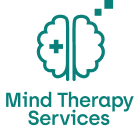
- Posted by : Mindtherapy
- Anxiety
- Mental Health
Social media. It’s woven into the fabric of our lives, a constant hum of notifications, curated snapshots, and carefully crafted online personas. But what about when this virtual world intersects with the very real work of therapy? Navigating the relationship between social media and mental health can be a messy, complicated affair, brimming with both potential pitfalls and powerful tools.
The Double-Edged Sword of Comparison
Scrolling through feeds overflowing with picture-perfect moments and highlight reels of success can trigger a tidal wave of self-doubt. The insidious comparison trap lies in wait, whispering insecurities and fueling anxieties. This constant bombardment of carefully curated perfection can distort reality, leaving us feeling like our own lives pale in comparison. In therapy, exploring these feelings of inadequacy and learning to cultivate self-compassion amidst the digital noise becomes crucial.
"Social media can be a powerful tool for connecting with others and finding support, but it's important to remember that it's not a replacement for professional help."
Think of your mental health as a spectrum. On one end, we all experience everyday stress, anxieties, and moments of feeling down. It’s part of being human. But on the other end lie struggles that threaten to overwhelm, anxieties that cripple, and emotions that feel like a storm you can’t escape.
Finding Your Tribe
Yet, social media can also be a beacon of hope, an avenue to connect with like-minded individuals who understand our struggles. Online communities dedicated to mental health provide a safe space to share experiences, offer support, and find camaraderie. Sharing our vulnerabilities with strangers online can feel counterintuitive, but it can also be incredibly liberating. In therapy, discussing the benefits and potential risks of online support groups can help us make informed choices about utilizing these resources effectively.
The Blurring Lines of Professional Boundaries
With therapists increasingly venturing into the digital realm, ethical considerations come into play. Therapists sharing professional advice on social media might inadvertently violate client confidentiality. Clients, on the other hand, might unintentionally disclose personal information in online spaces, jeopardizing privacy. Open communication and clear boundaries are key in therapy when navigating the potential pitfalls of online interactions.
Breaking the Stigma, One Hashtag at a Time
Social media can also be a powerful tool for destigmatizing mental health. Seeing celebrities and influencers openly discussing their own struggles can normalize seeking help and encourage others to prioritize their well-being. Therapy sessions conducted via video platforms can make mental health care more accessible, breaking down geographical barriers and reducing the stigma associated with in-person visits.

“Social Media and Therapy: A Double-Edged Sword”
Ultimately, the relationship between social media and therapy is a delicate dance. It requires awareness of potential pitfalls, responsible self-management, and open communication with our therapists. By harnessing the power of connection while protecting our privacy, we can utilize this digital landscape to empower ourselves and each other on the journey towards mental well-being.


